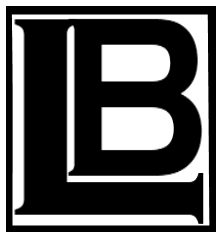In 1957-8 I was working at a literary agency and writing short stories for magazines like Manhunt and Trapped and Guilty. I was reading widely in the field, for pleasure as well as education, and the New York Mercantile Library was a great source of out-of-print crime fiction; they never threw anything out, so for pennies a day I could read my way through the complete works of some wonderful writers, not least of whom was Fredric Brown.
 I’d discovered Brown my freshman year in college, when my roommate Steve Schwerner and I ate up The Screaming Mimi and The Wench is Dead. I wasn’t calling it research then. I just loved the way the guy wrote, and now I had good reason to read everything the man had written.
I’d discovered Brown my freshman year in college, when my roommate Steve Schwerner and I ate up The Screaming Mimi and The Wench is Dead. I wasn’t calling it research then. I just loved the way the guy wrote, and now I had good reason to read everything the man had written.
So one night I came home from the office via the Merc. I remember that it was a Friday, and I’d stopped on my way home to pick up a bottle of Jim Beam, thinking it would be pleasant to have a drink or two while I read Murder Can Be Fun. I opened the book and the bottle, and every time Brown’s protagonist had a drink, I had one myself. Now you could do this with Agatha Christie or Ellery Queen and you’d be fine, but with Fred Brown it was suicidal. The next thing I knew it was morning, and I was passed out on the floor, and the bottle was empty, and the book barely half-finished.
Fredric Brown started out as a printer and had a considerable apprenticeship in the pulps before his first novel, The Fabulous Clipjoint, made its debut by winning an Edgar. (The book has a carnival background, and its uncle-and-nephew team of Ed and Am Hunter reappear to good effect in several later novels.) He was every bit asadept at science-fiction, and Martians Go Home and What Mad Universe are classics. He wrote an abundance of short stories in both genres, and a remarkable proportion of these are brilliant, and frequently grace anthologies. Every story he told was recounted in his very distinctive and always engaging voice. You pick up the book and read the first paragraph and relax, knowing you’re in good hands.
I’d recommend all of the books I’ve mentioned, and don’t want to forget Night of the Jabberwock, a special treat for Lewis Carroll enthusiasts.
I’d have liked to meet Fredric Brown, and might have; he went on living and writing novels until 1972. It never occurred to me to write him a letter, and then the day came when it was too late.

I’m delighted to read this: Whenever I’m asked to name my favorite authors, I always have to say Donald Westlake, lawrence Block and Fredric Brown… in no particular order. Last night I felt compelled to re-read Brown’s short-short “The End” and felt much better (okay: uneasily better) about 30 seconds later.